Find Help
More Items From Ergsy search
-
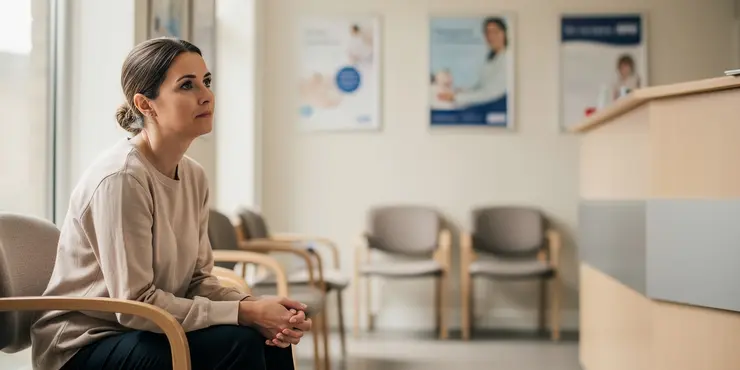
Cervical screening for women who have experienced sexual assault | NHS
Relevance: 100%
-
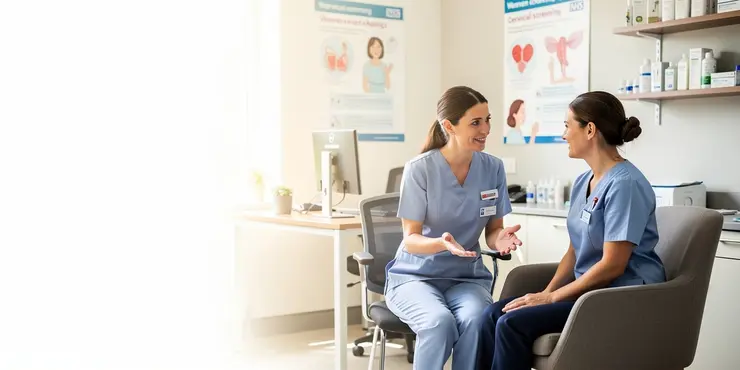
Cervical screening: Q&A | NHS
Relevance: 52%
-
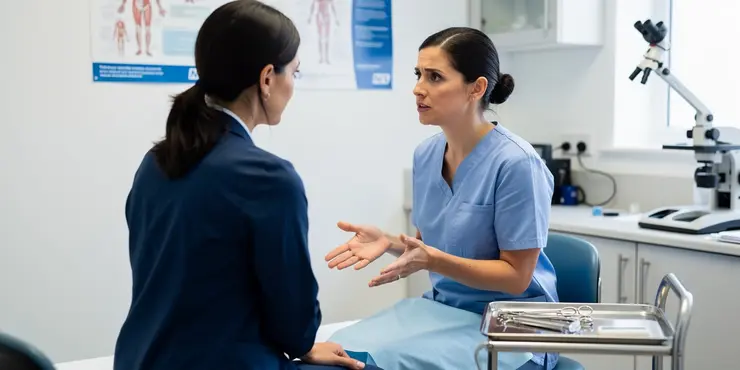
Cervical screening: what to expect | NHS
Relevance: 52%
-
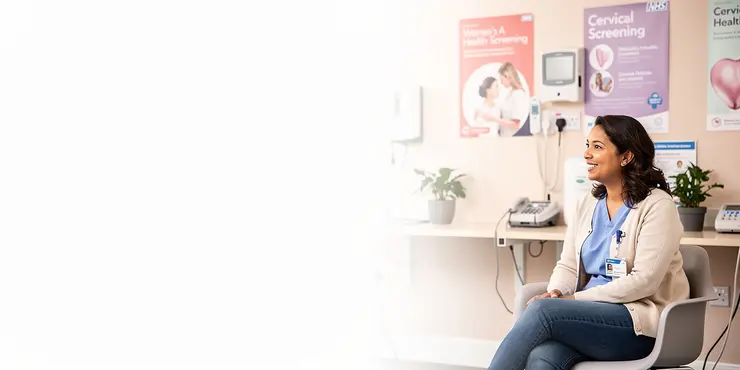
The NHS is #StillHereToHelp with cervical screening
Relevance: 52%
-
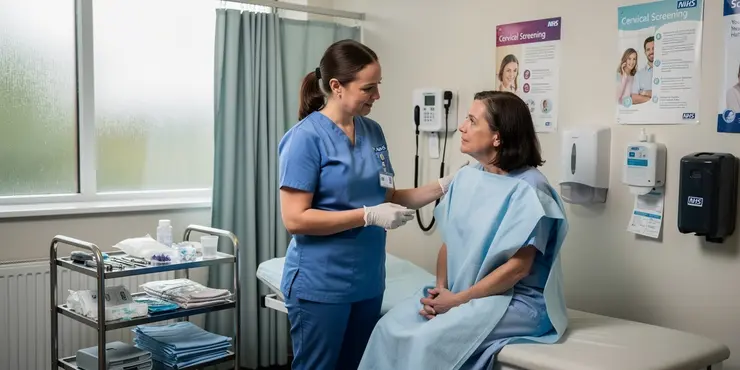
What is cervical screening (smear test)?
Relevance: 49%
-
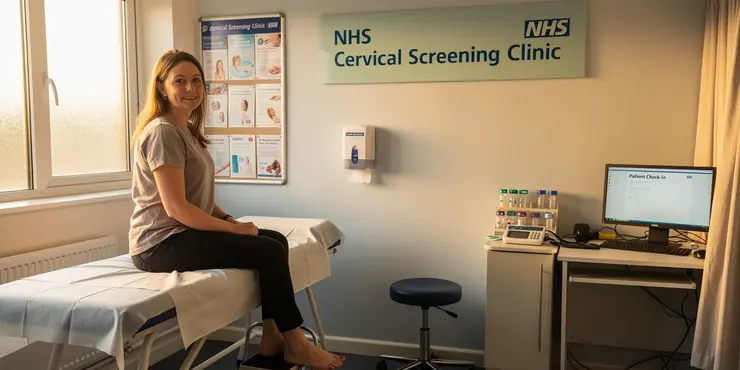
Cervical screening: what to expect | NHS
Relevance: 49%
-
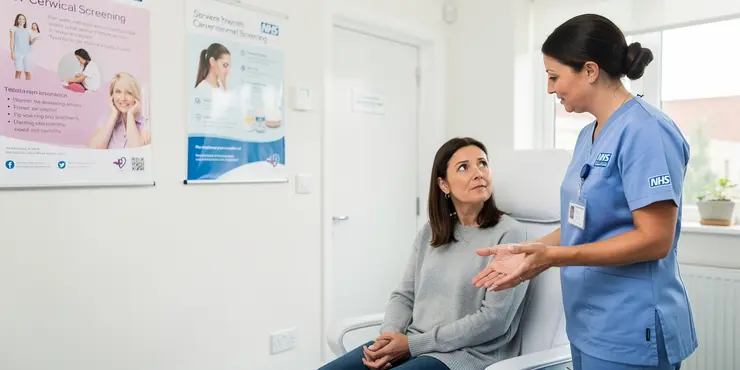
Cervical screening: how it's done | NHS
Relevance: 48%
-
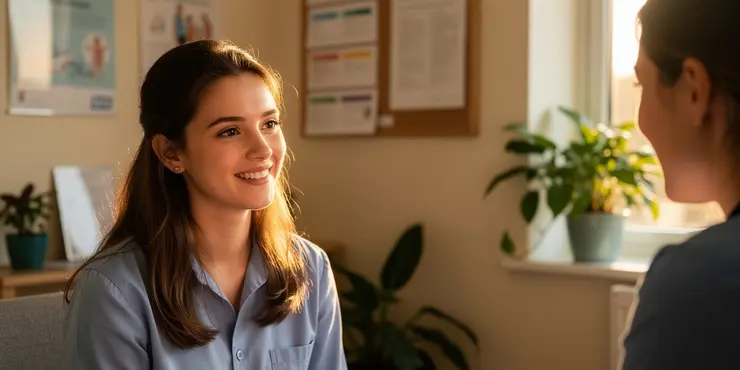
When should cervical cancer screening begin?
Relevance: 48%
-
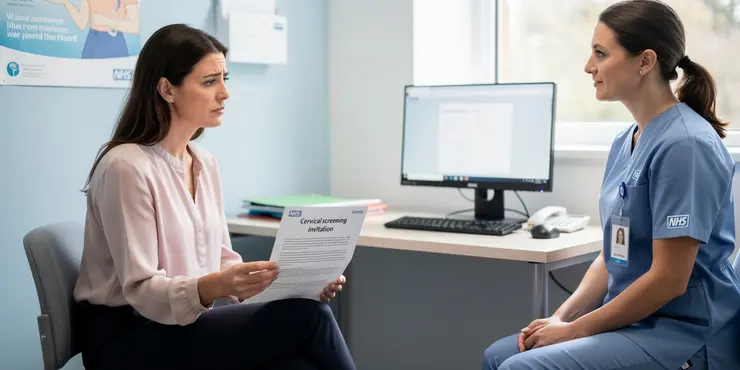
Don’t ignore your cervical screening invite | NHS
Relevance: 48%
-
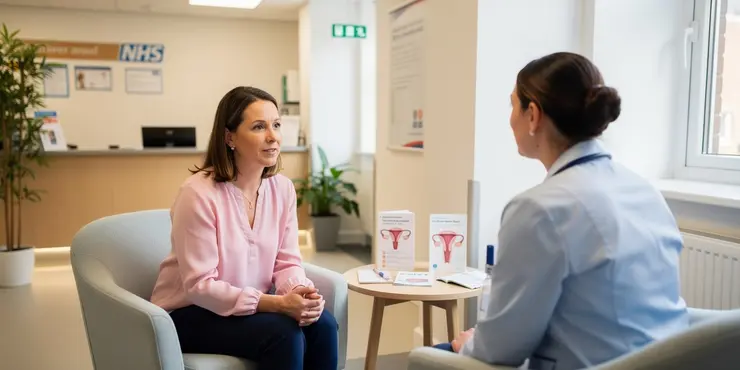
NHSGGC - Cervical Cancer Screening - English
Relevance: 47%
-
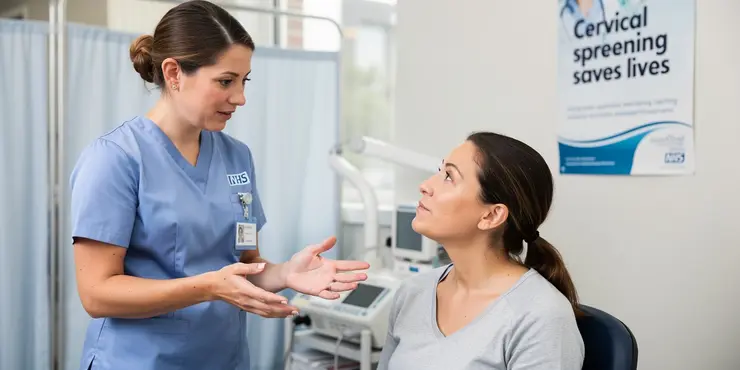
Cervical screening (smear test) – what’s it all about?
Relevance: 47%
-
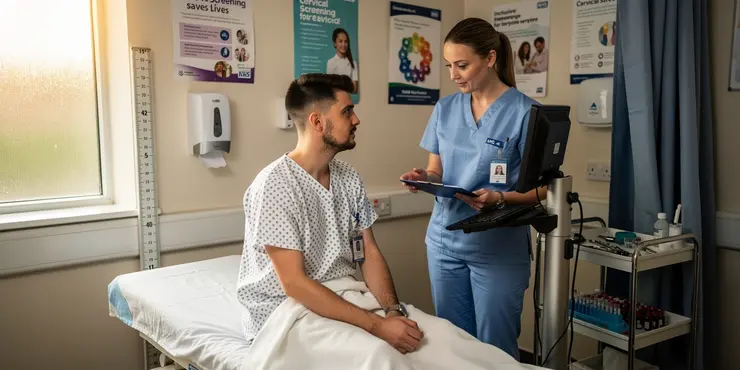
Cervical screening for transgender men | NHS
Relevance: 46%
-
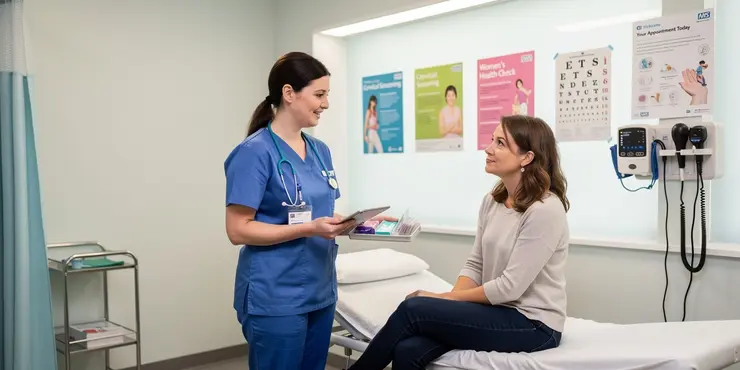
Booked in for your smear test (cervical screening) and not sure what to expect?
Relevance: 43%
-
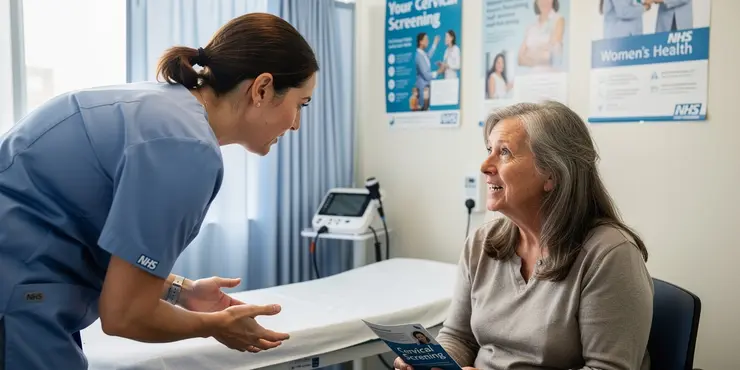
Accessing cervical screening with the right support for people with a learning disability
Relevance: 41%
-
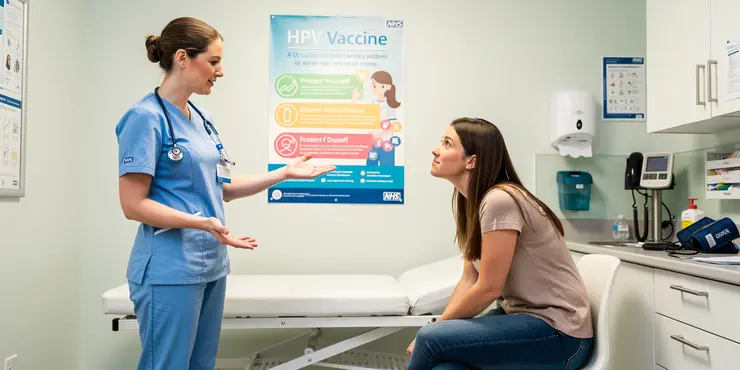
What is the link between HPV and cervical cancer?
Relevance: 41%
-
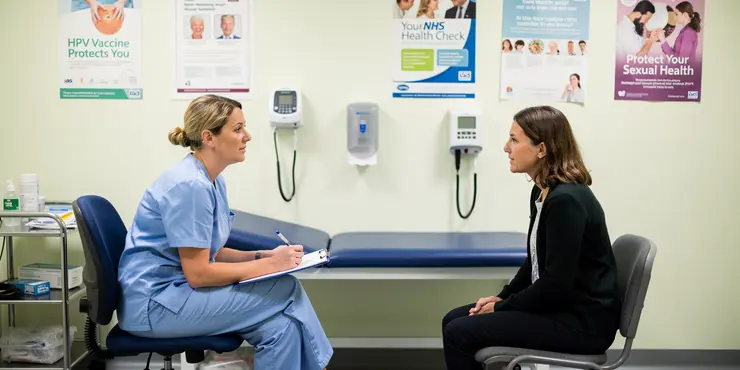
Can HPV affect both men and women?
Relevance: 35%
-
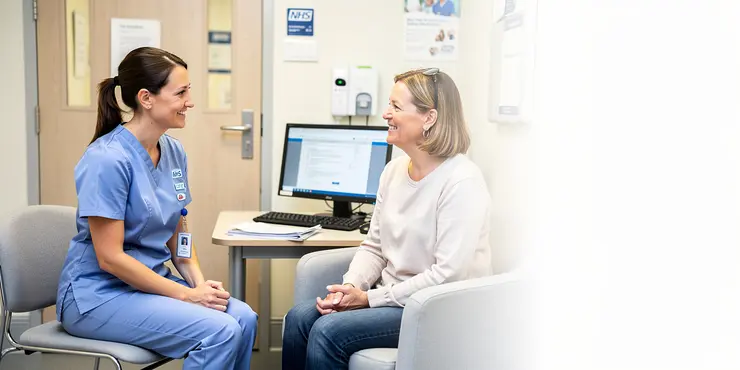
Health Screenings You Should Know About
Relevance: 32%
-
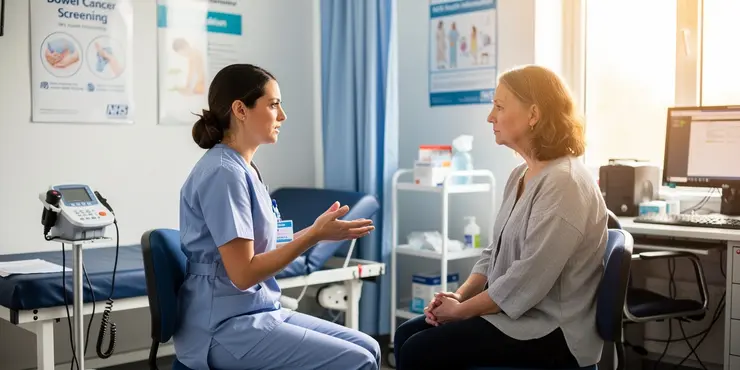
What kinds of cancer screening are available?
Relevance: 31%
-
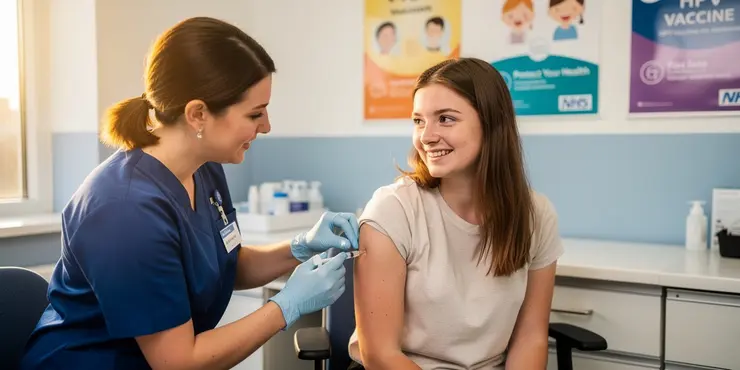
Surge in HPV Vaccination Rates Among Young Women in the UK
Relevance: 29%
-
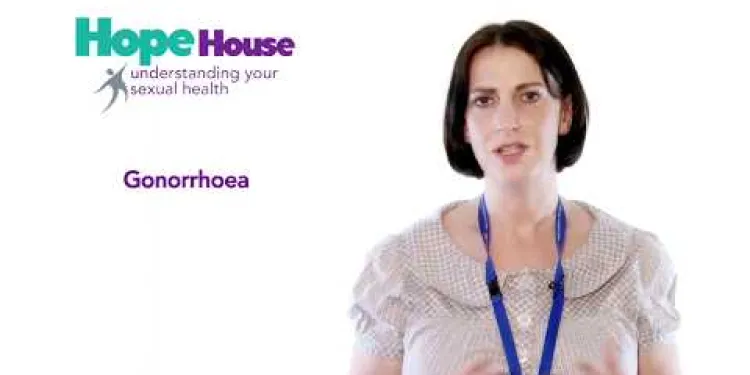
Understanding Your Sexual Health - Gonorrhoea
Relevance: 29%
-
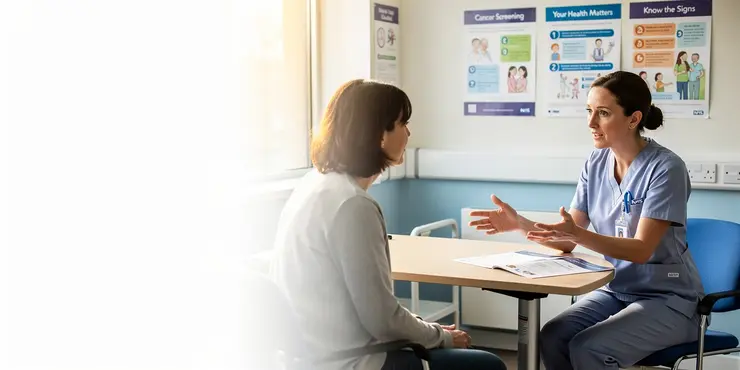
What is cancer screening?
Relevance: 29%
-

Understanding Your Sexual Health - Genital Warts
Relevance: 28%
-
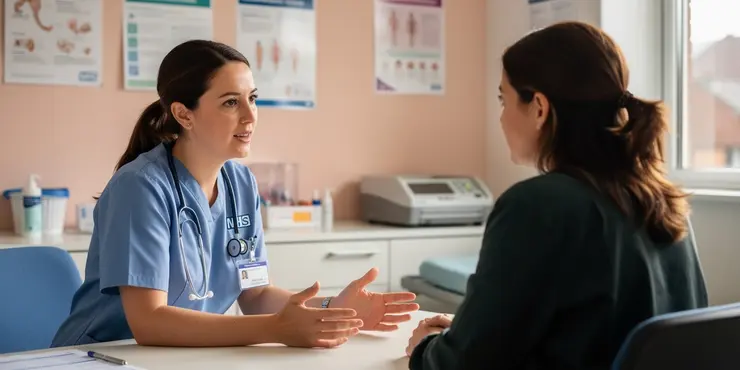
Sexually transmitted infections STIs
Relevance: 28%
-

How can HPV be prevented?
Relevance: 27%
-
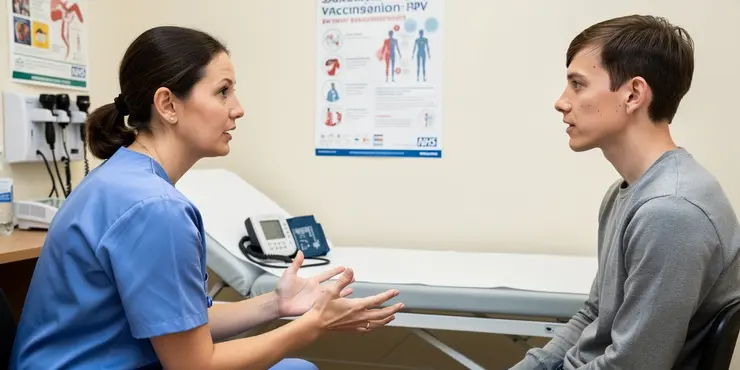
Can using condoms fully protect against HPV?
Relevance: 27%
-
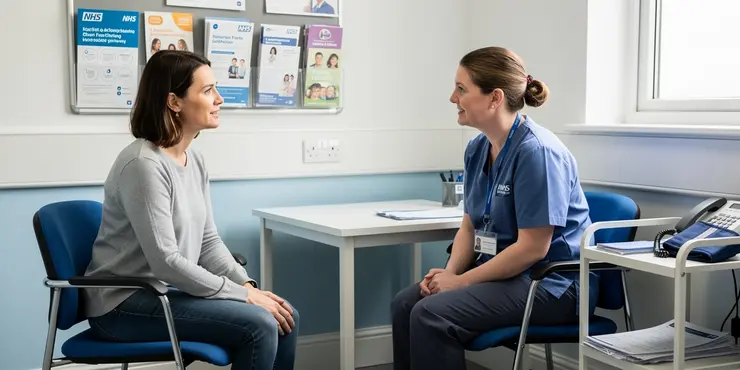
Understanding Your Sexual Health - Pelvic Inflammatory Disease
Relevance: 27%
-
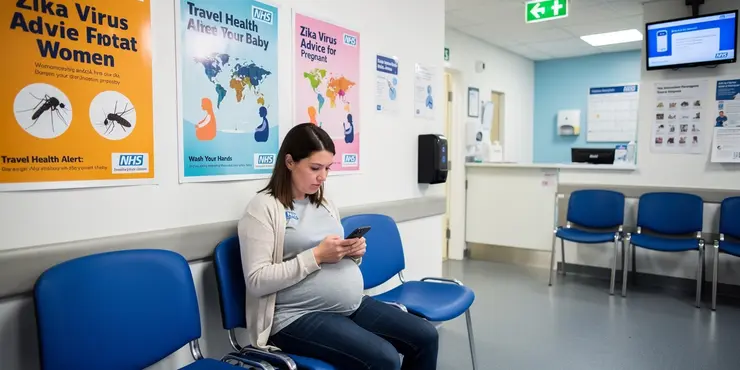
What precautions should pregnant women in the UK take regarding Zika virus?
Relevance: 26%
-
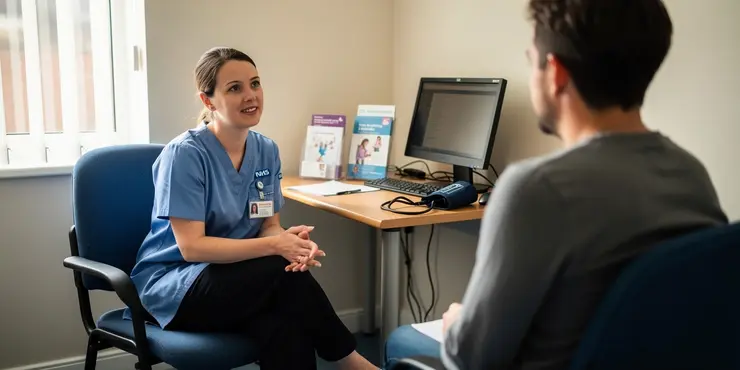
The Different Roles in Sexual Health and Family Planning UK
Relevance: 25%
-
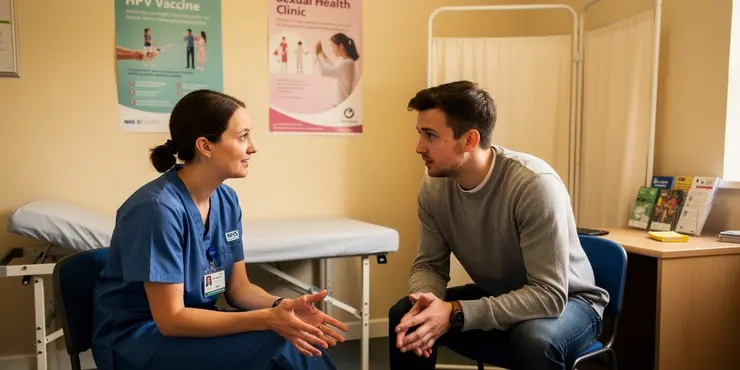
Can HPV lead to cancer?
Relevance: 25%
-
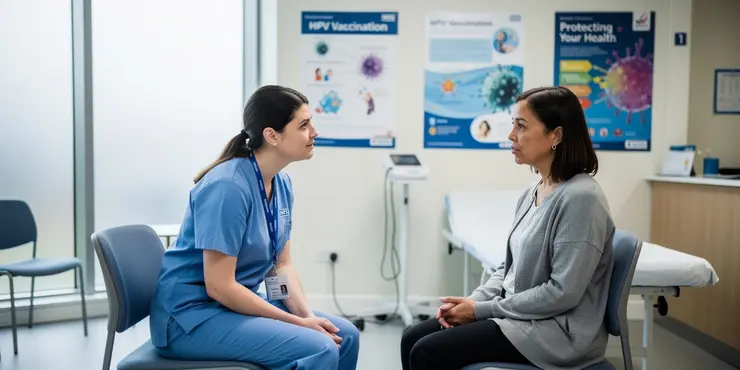
What is the HPV Virus?
Relevance: 25%
-
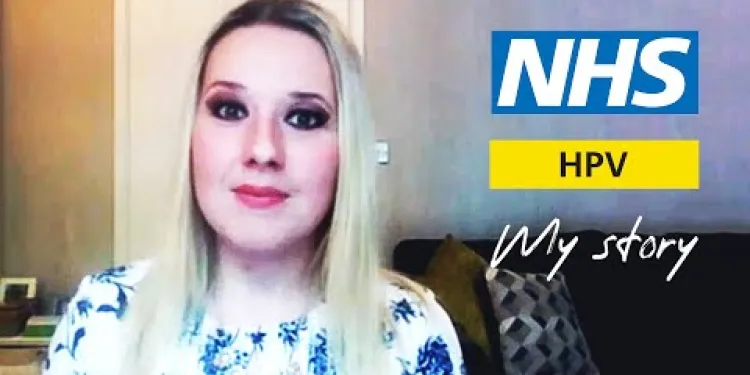
HPV - My Story | NHS
Relevance: 24%
-

Let's Talk Sexual Health - Home Self Testing Kits
Relevance: 24%
-
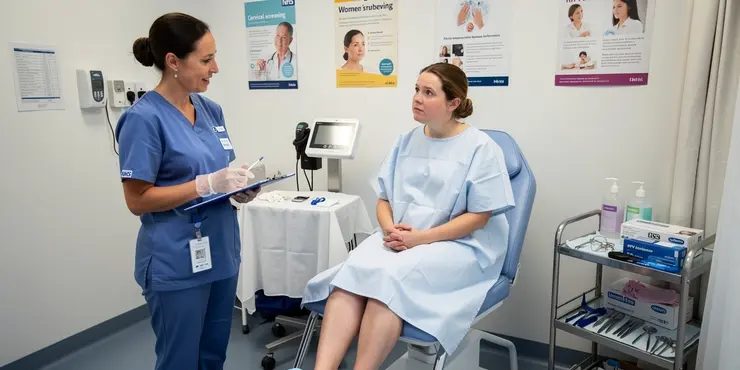
What is a Pap smear?
Relevance: 24%
-
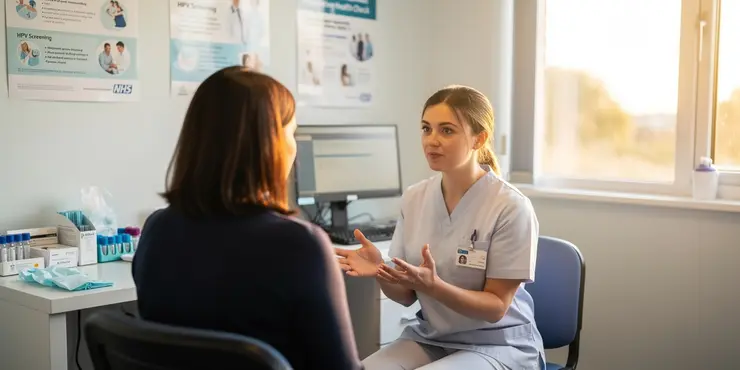
Is HPV testing available?
Relevance: 23%
-
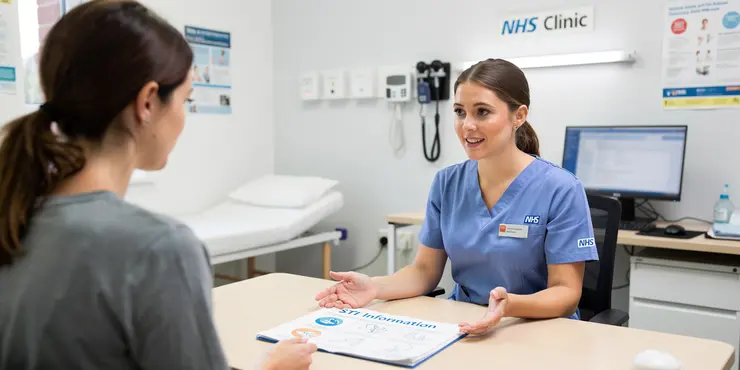
NHS STI (Sexually Transmitted Infections) Information Video
Relevance: 23%
-
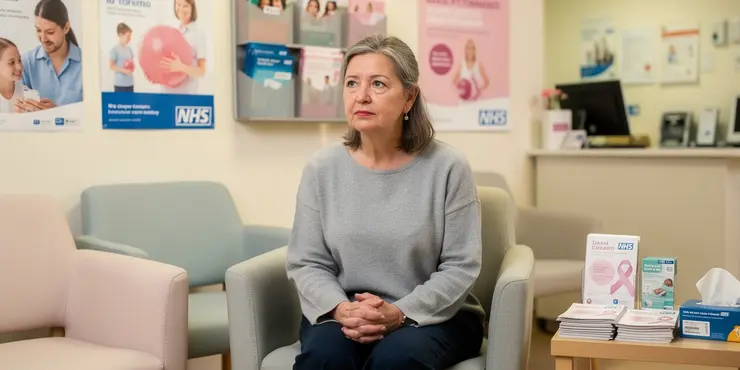
NHS breast cancer screening
Relevance: 22%
-

Understanding Your Sexual Health - Herpes
Relevance: 22%
-
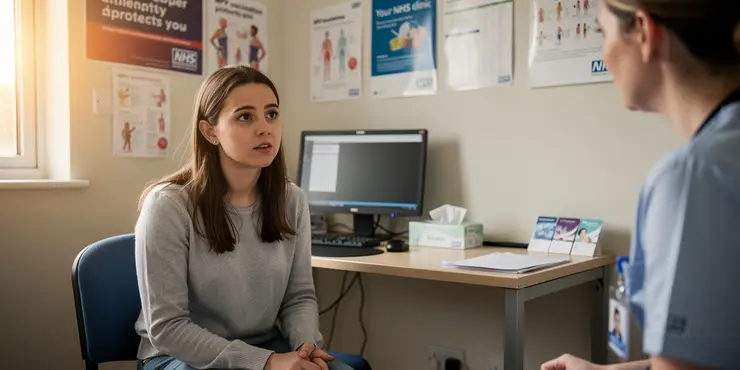
How common is HPV?
Relevance: 22%
-
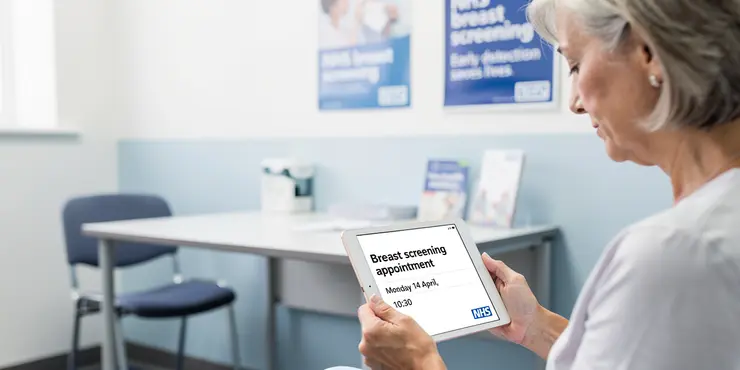
How often should I get screened for breast cancer?
Relevance: 22%
-
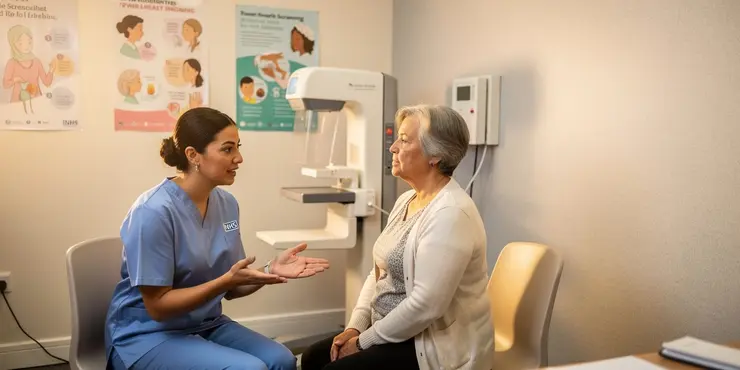
Tower Hamlets breast screening programme
Relevance: 22%
Cervical Screening for Women Who Have Experienced Sexual Assault | NHS
Understanding Cervical Screening
Cervical screening, also known as a smear test, is a critical procedure for detecting abnormalities in the cervix that could lead to cervical cancer. The NHS recommends that women aged 25 to 64 undergo regular cervical screenings. Despite the importance of these screenings, it's understandable that women who have experienced sexual assault may find the process particularly challenging.
Support and Sensitivity
The NHS is committed to providing a supportive and sensitive environment for all women, especially those who have experienced trauma. Medical professionals are trained to handle each case with utmost care and confidentiality. If you've experienced sexual assault, informing your healthcare provider can help them accommodate your needs, such as allocating more time for the appointment or allowing a trusted companion to be present.
Preparing for Your Screening
Preparation can significantly ease the anxiety associated with cervical screening. You have the right to request a female practitioner for the procedure. It's helpful to discuss your concerns and trigger warnings with the nurse or doctor beforehand. Wearing comfortable clothing and practicing deep-breathing techniques can also make the experience less distressing.
During the Screening
During the cervical screening, a small sample of cells is taken from your cervix using a speculum and a brush. While this may feel uncomfortable, it shouldn't be painful. You are in control throughout the procedure; you can ask to stop at any time if you feel overwhelmed. Don't hesitate to use the breathing techniques and relaxation methods discussed earlier.
After the Screening
Post-screening, it's crucial to take care of your emotional well-being. Ensure you have a safe space to process the experience, and seek support from friends, family, or professional counselors if necessary. The NHS offers various resources for emotional support, including services specifically tailored for survivors of sexual assault.
Reaching Out for Help
Remember, your health and comfort are paramount. The NHS offers numerous resources to support you in making the cervical screening process as stress-free as possible. Don't hesitate to reach out to organizations such as Rape Crisis or your local GP for additional support and information. Taking these steps ensures you prioritize both your physical and emotional health.
Cervical Screening Help | NHS
What is Cervical Screening?
Cervical screening, or smear test, checks for changes in the cervix. These changes could cause cancer. NHS says women aged 25 to 64 should have these tests. If you have been hurt before, like during sexual assault, this test might be hard for you.
Getting Support
NHS wants to help you feel safe and cared for. Doctors and nurses are trained to be gentle and keep your details private. Tell your doctor if you had a bad experience before. They can give you more time or let someone you trust be with you during the test.
Getting Ready for Your Test
Getting ready can make the test less scary. You can ask for a woman doctor. Talk to your nurse or doctor about what bothers you. Wear comfy clothes and try deep breathing to help you relax.
What Happens During the Test?
In the test, a small tool and brush are used to take tiny cells from your cervix. It might feel a little uncomfortable, but it should not hurt. You can stop the test any time if you need a break. Remember to breathe deeply if you feel stressed.
After the Test
Take care of your feelings after the test. Find a safe area to think about the experience. Talk to friends, family, or a counselor if you need to. NHS has support for people who had sexual assault before.
Ask for Help
Your health is important. NHS has many ways to help you feel at ease with the test. You can also contact groups like Rape Crisis or talk to your local doctor for more help. This care will help keep both your body and feelings healthy.
Frequently Asked Questions
What is a cervical screening?
Cervical screening (a smear test) is a method of preventing cervical cancer by detecting abnormal cells in the cervix that could become cancerous if untreated.
How often should I get a cervical screening?
In the UK, women aged 25-49 are invited for screening every 3 years, and women aged 50-64 are invited every 5 years.
Can I choose not to have a cervical screening?
Yes, cervical screening is not mandatory. You can choose to opt-out, but regular screening is recommended to help prevent cervical cancer.
How can sexual assault affect cervical screening?
Women who have experienced sexual assault may find cervical screening distressing and might have heightened anxiety or fear associated with the procedure.
Can I talk to my doctor about my history of sexual assault before a cervical screening?
Yes, informing your healthcare provider about your history can help them understand your concerns and provide additional support or adjustments during the screening.
Are there special provisions for women who have experienced sexual assault during cervical screening?
Yes, healthcare providers can make adjustments such as longer appointments, female examiners, and additional support to ensure you feel safe and comfortable.
Can I have a friend or support person with me during the screening?
Yes, you are allowed to bring a friend or support person with you to your appointment for reassurance and support.
What should I do if I feel uncomfortable during the screening?
If at any point you feel uncomfortable, you can ask the healthcare professional to stop. You are in control of the process and can take breaks if needed.
Is it possible to have a cervical screening under sedation or anaesthesia?
In certain circumstances, cervical screening can be done under sedation or anaesthesia, though this is not routine and would need to be discussed with your healthcare provider.
Will my sexual assault history be kept confidential?
Yes, any information you share with your healthcare provider, including your history of sexual assault, is confidential and will not be disclosed without your consent.
Can I request a female healthcare professional for my cervical screening?
Yes, you can request a female healthcare professional to conduct your cervical screening. It is advisable to mention this when booking your appointment.
What can I do to prepare for my cervical screening?
Preparing for cervical screening can involve bringing a support person, wearing comfortable clothes, and discussing your concerns and preferences with your healthcare provider beforehand.
What happens if abnormal cells are detected?
If abnormal cells are detected, you may be referred for further testing, such as a colposcopy, to determine whether treatment is needed to prevent cervical cancer.
Can I refuse certain aspects of the examination?
Yes, you can refuse any part of the cervical screening process. Your consent is essential at every step, and your wishes will be respected.
Are there alternatives to the traditional cervical screening process?
While the traditional method is the most common, some women may be eligible for self-sampling HPV tests. Speak to your healthcare provider to explore available options.
What is a cervical screening?
A cervical screening is a health check-up. It looks for changes in the cervix. The cervix is the lower part of the womb. This check-up helps to keep you healthy.
If you have questions or feel scared, it is okay to ask for help. You can talk to a doctor or a nurse. They will explain everything to you.
Here are some things that can help:
- Bring a trusted friend or family member with you.
- Ask the doctor or nurse any questions you have.
- Take deep breaths to help you relax.
Cervical screening, also called a smear test, is a way to stop cervical cancer. It checks for unusual cells in the cervix. These cells could turn into cancer if we do not treat them.
How often should I get a cervical screening?
A cervical screening is a health check for your cervix. Your cervix is the lower part of your belly where it connects to your private parts.
This check helps keep you healthy by finding any problems early.
You should get a cervical screening every few years. How often you get it can depend on your age and where you live. Your doctor or nurse can tell you what is best for you.
To remember when to get your check, you can write it on a calendar or set a reminder on your phone.
If reading is hard, you can ask someone you trust to read or explain it to you.
In the UK, women who are 25 to 49 years old get a health check every 3 years. Women who are 50 to 64 years old get a check every 5 years.
If you need help reading, you can ask someone to read it with you or you can use an app that reads text out loud.
Can I decide not to have a cervical screening test?
Yes, you can decide not to have the test if you don't want to.
Cervical screening is a test that checks for healthy cells in the neck of the womb. It can help find problems early. But it is your choice. You can say "No" if you do not want it.
If you are unsure, talk to a doctor or nurse. They can help you understand the test.
You can also ask someone you trust for help to make your choice.
You don't have to go for a cervical screening if you don't want to. It is your choice. But it is a good idea to go for regular checks to help stop cervical cancer.
How does sexual assault impact cervical screening?
Sexual assault is when someone touches you in a wrong way or forces you to do something. This can make going to a doctor scary. Some people might feel upset or worried about having a cervical screening test.
A cervical screening is a test to check if your cervix is healthy. The cervix is a part of the body. Doctors do the test to make sure you are healthy and well.
If sexual assault happened to you, it is okay to feel nervous or scared about the test. Here are some things that might help:
- Tell the doctor about your feelings. They can help you feel more comfortable.
- Bring a friend or family member with you if it makes you feel safe.
- Ask the doctor to explain the test step by step.
- Remember, you can always say "stop" if you feel uncomfortable.
It is important to look after your health. You can talk to someone you trust if you have questions or feel worried.
Women who have had bad experiences, like being hurt or touched without wanting it, might feel scared or worried about going to get a cervical screening.
Can I talk to my doctor about being hurt in the past before a cervical screening?
It is okay to talk to your doctor if you were hurt or scared by someone before. This can help you feel better and safer. You can tell your doctor before you have a cervical screening.
Here are some things you can do:
- Write down what you want to say before you talk to your doctor. This can help you remember.
- Bring a friend or family member with you for support.
- Ask your doctor to explain things slowly or in a different way if you do not understand.
Your doctor is there to help you and keep you safe.
Yes, tell your doctor about your past. This can help them understand what you need and give you extra support or changes when they check your health.
Is there special help for women who have been hurt during a cervical screening?
If a woman has been hurt or attacked, she can get special help during her cervical screening.
Doctors and nurses want to make sure she feels safe and comfortable.
It is important to talk to the doctor or nurse before the screening if she needs extra help or support.
Some things that can help include:
- Bringing a friend or family member to the appointment
- Asking for a female doctor or nurse
- Telling the doctor or nurse about any worries or fears
- Taking breaks during the screening if needed
These steps can make the screening easier and more comfortable.
Yes, doctors and nurses can help you if you need more time for your appointment. You can ask for a lady doctor if that makes you feel better. They can also give you extra support to make sure you feel safe and comfy.
Can I bring a friend to help me during the check-up?
You can bring a friend or someone to help you when you go to your appointment. They are there to make you feel safe and give you support.
What should I do if I feel upset or scared during the check-up?
If you feel upset, scared, or not okay during the check-up, you can do these things:
- Tell the doctor or nurse right away. They are there to help you.
- You can ask for a break if you need to relax.
- Bring a friend or family member with you to feel better.
- Ask questions if you do not understand what is happening.
Remember, it is okay to say how you feel. The check-up is to help you.
If you feel uneasy, you can ask the doctor or nurse to stop. You are in charge and can take a break if you need to.
Can you have a cervical screening while you are asleep?
You can have a cervical screening when you are asleep. This means you would not feel anything during the test.
Talk to your doctor or nurse if you want this. They can tell you more and help you decide.
Here are some helpful things you can do:
- Ask a friend or family member to come with you.
- Use pictures or stories to help understand the test.
- Write down any questions you have.
Sometimes, doctors can do a cervical screening while you are asleep or very relaxed. This is not common, and you should talk to your doctor about it.
Will my sexual assault history stay private?
If you tell someone about a sexual assault, they should keep it private. This means they do not tell other people unless they have to for safety.
If you need help, you can talk to a trusted person. They can be a family member, a doctor, or a support worker. They can help keep things private and explain things to you.
You can also use tools to help you feel safe, like writing down your feelings in a diary or talking to a support hotline.
Yes, when you tell your doctor something, like if you have been hurt before, it is private. They will not tell anyone else unless you say it's okay.
Can I ask to see a female doctor or nurse for my cervical screening?
Yes, you can ask to see a female doctor or nurse when you have your cervical screening. This is your right, and it can help you feel more comfortable.
Here are some tips to help you:
- Call the clinic or doctor's office before your appointment. Tell them you would like to see a female doctor or nurse.
- Use simple words to explain why you feel more at ease with a female healthcare professional.
- If you need help, ask a family member, friend, or support worker to talk to the clinic for you.
Remember, it is important to feel safe and comfortable during your cervical screening.
Yes, you can ask for a woman doctor or nurse to do your cervical screening. It's a good idea to say this when you make your appointment.
How can I get ready for my cervical screening?
Getting ready for a cervical screening is important. Here are some simple steps:
- Pick a day that feels good for you and when you are not on your period.
- Wear something easy and comfortable.
- If you feel nervous, talk to someone you trust or a doctor.
- Ask the nurse or doctor any questions you have. They are there to help!
If reading is hard, ask someone to help read or explain the words. You can also use tools like audiobooks or apps that read text out loud.
Getting ready for a cervical screening? Here are some tips to make it easier:
- Bring someone with you. It could be a friend or family member.
- Wear clothes that are comfy and easy to take off and put on.
- Talk to your doctor or nurse before the screening. Tell them if you are nervous or have questions.
What if doctors find cells that are not normal?
If doctors find unusual cells, they might send you for more tests. One test is called a colposcopy. These tests help doctors see if you need treatment to stop cervical cancer.
Can I say no to some parts of the test?
Yes, you can say no to any part of the cervical screening test. You must agree before anything happens, and people will respect what you want.
Are there other ways to do cervical screening?
Cervical screening is a test that checks the health of your cervix. There are some different ways to do this test.
Here are some other ways:
- Self-sampling: You can use a special kit to take a sample at home. Then, you send it to the lab.
- HPV testing: This checks for a virus that can cause changes in your cervix. It is often done with the normal test but can be done differently too.
If you find cervical screening hard, you can ask for help. Talk to your doctor or nurse. They can explain and help you understand what will happen. Remember, cervical screening is important for your health.
Most women get tested for HPV in the usual way. But some women can take their own sample to test for HPV. Talk to your doctor to learn about different choices.
Useful Links
This website offers general information and is not a substitute for professional advice.
Always seek guidance from qualified professionals.
If you have any medical concerns or need urgent help, contact a healthcare professional or emergency services immediately.
Some of this content was generated with AI assistance. We’ve done our best to keep it accurate, helpful, and human-friendly.
- Ergsy carfully checks the information in the videos we provide here.
- Videos shown by Youtube after a video has completed, have NOT been reviewed by ERGSY.
- To view, click the arrow in centre of video.
- Most of the videos you find here will have subtitles and/or closed captions available.
- You may need to turn these on, and choose your preferred language.
- Go to the video you'd like to watch.
- If closed captions (CC) are available, settings will be visible on the bottom right of the video player.
- To turn on Captions, click settings .
- To turn off Captions, click settings again.
More Items From Ergsy search
-

Cervical screening for women who have experienced sexual assault | NHS
Relevance: 100%
-

Cervical screening: Q&A | NHS
Relevance: 52%
-

Cervical screening: what to expect | NHS
Relevance: 52%
-

The NHS is #StillHereToHelp with cervical screening
Relevance: 52%
-

What is cervical screening (smear test)?
Relevance: 49%
-

Cervical screening: what to expect | NHS
Relevance: 49%
-

Cervical screening: how it's done | NHS
Relevance: 48%
-

When should cervical cancer screening begin?
Relevance: 48%
-

Don’t ignore your cervical screening invite | NHS
Relevance: 48%
-

NHSGGC - Cervical Cancer Screening - English
Relevance: 47%
-

Cervical screening (smear test) – what’s it all about?
Relevance: 47%
-

Cervical screening for transgender men | NHS
Relevance: 46%
-

Booked in for your smear test (cervical screening) and not sure what to expect?
Relevance: 43%
-

Accessing cervical screening with the right support for people with a learning disability
Relevance: 41%
-

What is the link between HPV and cervical cancer?
Relevance: 41%
-

Can HPV affect both men and women?
Relevance: 35%
-

Health Screenings You Should Know About
Relevance: 32%
-

What kinds of cancer screening are available?
Relevance: 31%
-

Surge in HPV Vaccination Rates Among Young Women in the UK
Relevance: 29%
-

Understanding Your Sexual Health - Gonorrhoea
Relevance: 29%
-

What is cancer screening?
Relevance: 29%
-

Understanding Your Sexual Health - Genital Warts
Relevance: 28%
-

Sexually transmitted infections STIs
Relevance: 28%
-

How can HPV be prevented?
Relevance: 27%
-

Can using condoms fully protect against HPV?
Relevance: 27%
-

Understanding Your Sexual Health - Pelvic Inflammatory Disease
Relevance: 27%
-

What precautions should pregnant women in the UK take regarding Zika virus?
Relevance: 26%
-

The Different Roles in Sexual Health and Family Planning UK
Relevance: 25%
-

Can HPV lead to cancer?
Relevance: 25%
-

What is the HPV Virus?
Relevance: 25%
-

HPV - My Story | NHS
Relevance: 24%
-

Let's Talk Sexual Health - Home Self Testing Kits
Relevance: 24%
-

What is a Pap smear?
Relevance: 24%
-

Is HPV testing available?
Relevance: 23%
-

NHS STI (Sexually Transmitted Infections) Information Video
Relevance: 23%
-

NHS breast cancer screening
Relevance: 22%
-

Understanding Your Sexual Health - Herpes
Relevance: 22%
-

How common is HPV?
Relevance: 22%
-

How often should I get screened for breast cancer?
Relevance: 22%
-

Tower Hamlets breast screening programme
Relevance: 22%


